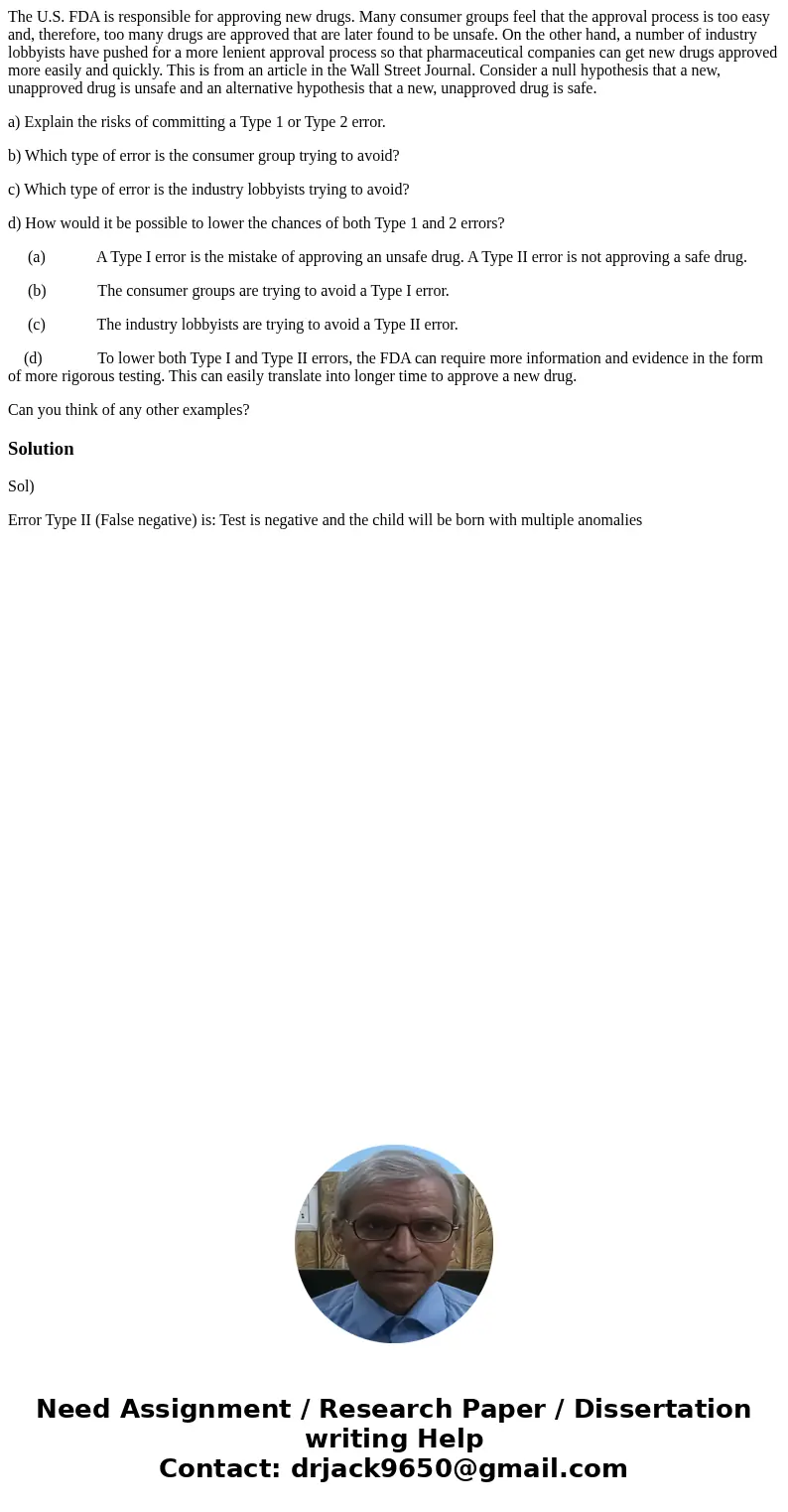The US FDA is responsible for approving new drugs Many consu
The U.S. FDA is responsible for approving new drugs. Many consumer groups feel that the approval process is too easy and, therefore, too many drugs are approved that are later found to be unsafe. On the other hand, a number of industry lobbyists have pushed for a more lenient approval process so that pharmaceutical companies can get new drugs approved more easily and quickly. This is from an article in the Wall Street Journal. Consider a null hypothesis that a new, unapproved drug is unsafe and an alternative hypothesis that a new, unapproved drug is safe.
a) Explain the risks of committing a Type 1 or Type 2 error.
b) Which type of error is the consumer group trying to avoid?
c) Which type of error is the industry lobbyists trying to avoid?
d) How would it be possible to lower the chances of both Type 1 and 2 errors?
(a) A Type I error is the mistake of approving an unsafe drug. A Type II error is not approving a safe drug.
(b) The consumer groups are trying to avoid a Type I error.
(c) The industry lobbyists are trying to avoid a Type II error.
(d) To lower both Type I and Type II errors, the FDA can require more information and evidence in the form of more rigorous testing. This can easily translate into longer time to approve a new drug.
Can you think of any other examples?
Solution
Sol)
Error Type II (False negative) is: Test is negative and the child will be born with multiple anomalies

 Homework Sourse
Homework Sourse